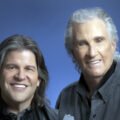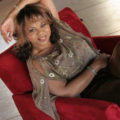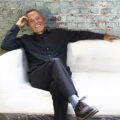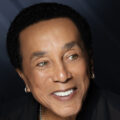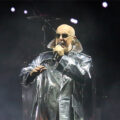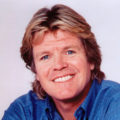“Things Can Only Get Better” when synth-pop pioneer Howard Jones joins ABC at the Genesee
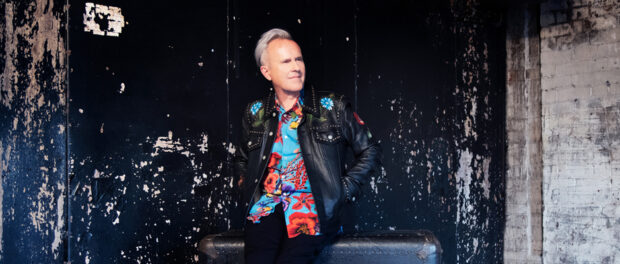 Photos provided by Simon Fowler
Photos provided by Simon Fowler
Synth-pop pioneer Howard Jones defined much of the 1980s thanks to such contagious cuts as “Things Can Only Get Better,” “No One Is To Blame,” “Everlasting Love,” “New Song,” “Like To Get To Know You Well” and “What Is Love?”
The singer/songwriter’s been steadily reinventing himself ever since, releasing a string of electronic albums as of late and teaming with fellow English pop band ABC (“The Look Of Love,” “Poison Arrow”) throughout America.
Prior to appearing together at the Genesee Theatre on Thursday, February 20, Jones and Chicago Concert Reviews had a “Dialogue” about being tailor-made for MTV, performing at Live Aid, independently taking charge of his destiny and previewing an upcoming project with a plea for everyone to be a “Global Citizen.”
What can the Genesee Theatre expect from this unique combination with ABC?
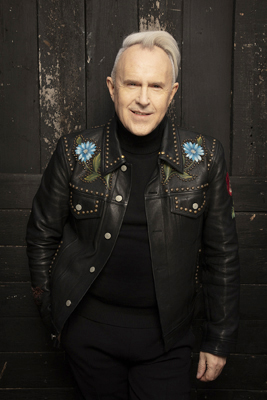 Howard Jones: I can’t wait to play there. It looks like a lovely theatre…It’s great to be teaming up with [ABC]. We did a tour last year and so many people said, “Why aren’t you coming to our city?” So we’re filling in the gaps on this one. It’s very exciting for me because, although it’s a continuation of that tour we started last year, I’ve got pretty much a brand new band that I’m bringing out. The only person that’s the same is Nick Beggs, who plays bass with me and was from Kajagoogoo. He’s been a friend since the early ‘80s. I’ve got a new drummer, guitarist and keyboard player. It’s been such fun getting the new band together and rehearsing with everyone…I’m very excited for the fans to see it.
Howard Jones: I can’t wait to play there. It looks like a lovely theatre…It’s great to be teaming up with [ABC]. We did a tour last year and so many people said, “Why aren’t you coming to our city?” So we’re filling in the gaps on this one. It’s very exciting for me because, although it’s a continuation of that tour we started last year, I’ve got pretty much a brand new band that I’m bringing out. The only person that’s the same is Nick Beggs, who plays bass with me and was from Kajagoogoo. He’s been a friend since the early ‘80s. I’ve got a new drummer, guitarist and keyboard player. It’s been such fun getting the new band together and rehearsing with everyone…I’m very excited for the fans to see it.
There’s certain songs I really have to play otherwise people would be really cross with me (laughs). I’m really looking forward to playing those, but also I’m playing a couple of more recent songs. The problem is it’s an hour-and-ten-minutes, so trying to fit everything in is difficult, but I’m getting in all the big hits and a couple of new things. Also, we do a remix of “Things Can Only Get Better” at the end and people love that. I get to do “Too Shy” with Nick as well, which is really fun, so yeah, it’s been going very well, let’s put it that way. I’m very happy.
What stands out when you think of Chicago and any previous concerts in the area?
Jones: I tell you what, Chicago was one of the first cities in the whole of America that really picked up on my first single, “New Song.” They played it like crazy and it became a hit. Chicago really got behind it and I think it got to number one on radio here. I’ve always had a lot of gratitude for the city for that.
So many gigs, I can’t remember them all. I’ve been doing this forty years and I’ve been probably playing Chicago every other year. Always great audiences. Always love coming to the city. It gets pretty cold in the winter, but I grew up in Canada, so I’m used to cold weather (laughs). I just love the energy of the Chicago fans and am looking forward to being back with them on this tour.
Why did you go the totally electronic route for “Dialogue” and last couple of releases?
Jones: I think I was responding to two things. One is the fans really wanted me to do that again, and also, I just felt I was in the mood to do a whole set of new albums that were very, very electronic again. There’s one more to do and that will be like a series of four then, starting with “Engage,” “Transform,” “Dialogue,” and then this year, “Global Citizen.” I’ve actually been working on some stuff today in the studio, just getting ideas together for that, so hopefully when I get back from the tour, I’ll get straight into writing and have an album by the end of the year.
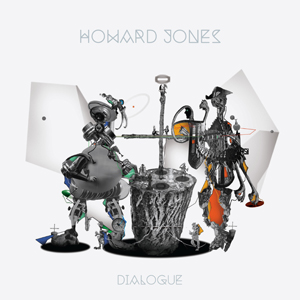 What’s on your mind as you approach the theme and lyrics?
What’s on your mind as you approach the theme and lyrics?
Jones: There’s a theme with the four albums. “Engage”: We have to be engaged in the world. We can’t just sit back and be bystanders, and if we want to change the world, we have to “Transform” ourselves, work on ourselves to be at our full potential. And then “Dialogue” is when we talk to people, communicate and discover all the things we have in common. Even though we may disagree on certain things, there are lots of things we have in common.
Then “Global Citizen,” which is taking responsibility for our place on the planet, and seeing this wonderful planet that we’re on, and caring that it survives and realizing that we have a part to play in that. It’s gonna be the most tricky one to write because it’s gonna be representative of how would you think if you’re thinking as a “Global Citizen?”You care about what’s going on in other parts of the world, and you care about when people are having a bad time, and suffering through droughts, and famines and illnesses. I think it’s like having absolute global views of the world and how to respond. I’m working on how I’m going to express that, so that’s a big project for me.
The world feels completely turned upside down, so “Things Can Only Get Better,” right?
Jones: (Laughs) I think it’s good for us to be hopeful and “Things Can Only Get Better.” I did say that, that each of us can make a difference. What I’m saying is just be really kind to everybody you meet, and be really respectful to everyone you meet, and make friends wherever you go, and talk to people and communicate. All those things add up, and if we all go about our lives doing that a bit more, and thinking about how we can support each other, and be kind to each other, I think that takes a lot of courage, but if we do it, it all adds up to make a difference.
That was of course one of your hugest hits and you had many, especially throughout the 1980s. Did you enjoy the streak or was there always pressure to keep it going?
Jones: There was a bit of both. You realize that you’re in this incredibly fortunate position of being able to make records with the best producers, and be in the best studios and have a record company that really wants you to do well. It’s a privileged position to be in. So you think, “I’d really like to keep this going” and I think most of the ‘80s I was thinking [that]. When I went out on tour and played the songs for people, that’s the reward. You can only enjoy that when everyone’s singing back the songs to you everywhere you go around the world. It’s such a wonderful thing to happen, and so any kind of anxiety of keeping it going is dissipated by being out there playing live.
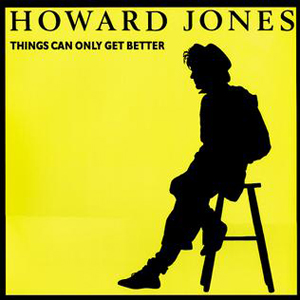 But I think the shock comes when you’re time in the spotlight is over and then you go on to the next phase of your career, which for me was very exciting ‘cause I formed my own label, and became an independent artist, and connected with my fans through the internet and everything like that. It’s always been a great journey, but I would say [to] young artists [asking], “how did you become successful?,” the thing is it’s always going to be down to you. Even if you’re signed to the biggest record companies, you still have to really be in the driving seat, inspiring people around you to help you get to where you want to be. There’s some of the things I’ve learned over the years. It’s always going to be down to me (laughs). Make things happen and find the right people to work with. Find the right musicians, and write songs and all that stuff.
But I think the shock comes when you’re time in the spotlight is over and then you go on to the next phase of your career, which for me was very exciting ‘cause I formed my own label, and became an independent artist, and connected with my fans through the internet and everything like that. It’s always been a great journey, but I would say [to] young artists [asking], “how did you become successful?,” the thing is it’s always going to be down to you. Even if you’re signed to the biggest record companies, you still have to really be in the driving seat, inspiring people around you to help you get to where you want to be. There’s some of the things I’ve learned over the years. It’s always going to be down to me (laughs). Make things happen and find the right people to work with. Find the right musicians, and write songs and all that stuff.
Long before the internet, what do you remember about the MTV days and music videos?
Jones: Oh man, that was such good fun because [during] my early days of developing the electronic show, it contained a lot of visual elements. We had TV screens on the stage and we ran VHS tapes that had been programmed by friends. I had Jed [Hoile], who was my mime artist and dancer, who was on stage portraying all these different characters representing the songs. We kind of had a visual language ready to go, so MTV and making videos was very comfortable ’cause we’d been doing that on the stage for two or three years. That first video, [“New Song”], with Jed in chains coming out of a factory, playing synthesizers strapped around your neck in the London Underground, that was natural to us to be using that kind of language, so it was such good fun making videos. Jed’s a brilliant part of it all.
Speaking of a specific MTV moment, what went through your mind when you looked out at that massive Live Aid crowd?
Jones: It was terrifying because [there were] so many people. I’ve never played to that many people live before. There was a hundred thousand people at Wembley [Stadium] and then you know that the whole world was watching as well. As in like two billion people around the world were watching it. The adrenaline was flowing, the heart rates were high and I decided to do it solo at the piano. Nobody had ever really seen me do that, apart from people who’d been to our shows. But I wanted to do “Hide And Seek” because I thought it was the most appropriate song for the occasion. It’s a song about hope and it’s a song about believing in people. So yeah, it was scary, but I got to the chorus and the whole of the Wembley audience joined in with me. It was euphoria to feel supported by all those people. It was just great. I’ll just never forget that feeling. It was hard to pass that…It really did save thousands and thousands of lives, and changed the lives of so many people. It was the best thing that happened in the ‘80s, in my view. It was a cultural event and showed that things could be changed if we decided that we wanted to do it. I was so happy to be part of it.
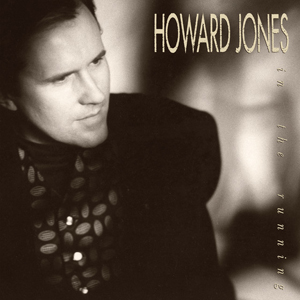 At the start of the ‘90s, you made a very interesting record, “In The Running,” that was recently reissued. Tell us a little bit about the transitions it brought.
At the start of the ‘90s, you made a very interesting record, “In The Running,” that was recently reissued. Tell us a little bit about the transitions it brought.
Jones: It was much more sort of soul-focused and there was a lot of back to me playing piano again. I was working with Ross Cullum, a very, very meticulous producer/engineer. I’m very proud of the record as well. It’s a shame that Warner Brothers didn’t want to continue. That was my last of the five albums I’d done for them ‘cause I was just getting going really (laughs). And it was a change of direction, more focusing on quiet, thoughtful poetry and lyrics, and more focused on like a singer/songwriter-type vibe. It was a lot of fun doing that record. Bob Clearmountain mixed it. It was great, but it was a bit of a shock when they said, “we’re not gonna sign you up for the next five” (laughs).
Whether you realized it or not, you made history as one of the first major artists to go the independent route and distribute your music over the internet, which was not common by any means at the time. Can you tell us about getting that going?
Jones: I’m very thankful that I was in the position where people knew who I was and I had hits around the world, so I invested in my studio at home so I could make records to my heart’s content there. The first thing I did was book a tour and make an album called “Working In The Backroom.” It was very spontaneous and full of energy. I did a one man show again touring Europe and America. Don’t be sitting at home moping about the fact that the major record label didn’t continue with you. Just go on and do it yourself. Set your own agenda and your own course. That coincided with the birth of the internet, that we could contact the fans and be in touch with them through that, and of course, that’s grown to phenomenal proportions now. The changes that have gone on in the music business are just phenomenal. You hardly recognize [it anymore], but that’s how I roll. You have to roll with the changes…
Are there any surprising instances lately where there’s been renewed interest in your songs?
Jones: I’ve done quite well with syncs in things like “Stranger Things,” “Breaking Bad,” and “BumbleBee.” There’s been some really great films and TV shows that people have used my music in, which has been very nice. What’s good about that is it gets to a new audience that may not have ever heard those songs before. I was noticing that there’s a new demographic, a new age group that was listening to or discovering songs like “Things Can Only Get Better” for the first time. That’s really exciting because it sort of means that the music is cross-generational, which is a bit of a nice feeling that young people are hearing it for the first time and liking it.
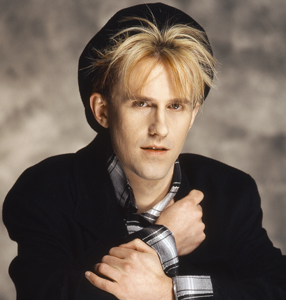 Which are a few of the key moments in your career you’ll never forget?
Which are a few of the key moments in your career you’ll never forget?
Jones: The first time that we did “Top Of The Pops.” That was a pivotal moment when the whole of the U.K. got to hear my music for the first time and see me in front of my keyboards, and with Jed, and that was massive. Then things like I always wanted to do one in America, ‘cause I lived in Canada as a kid, and had a big connection with American radio and American artists. So we finally got to headline Madison Square Garden and that was a big moment. I’d dreamt of doing it, but I never thought it would actually happen. Doing the Grammys with Stevie Wonder, Thomas Dolby and Herbie Hancock, that was a real pivotal moment in the sense that it linked two generations of players, the new guys and the legends. That was wonderful.
So when’s the book coming out?
Jones: (Laughs) Well, I mean the story’s still evolving. I think it’s gonna be soon though, isn’t it? In the next five years. I know who I want to write it, so yeah, I must think about that. It’s just so busy touring, and making records, and actually doing the stuff, having time to think about reflecting on the whole 40 years or something, you need time for that and I haven’t really got it at the moment.
Howard Jones performs alongside ABC at the Genesee Theatre on Thursday, February 20. For additional details, visit HowardJones.com and GeneseeTheatre.com.

